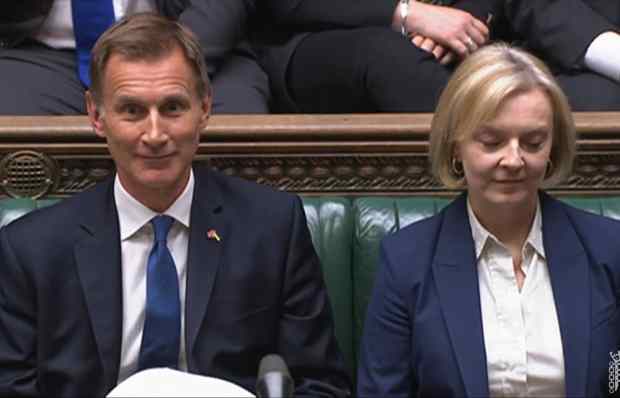The government is trying to get onshore windfarms going again, defying the damage they do to unique environments. I am perplexed by how its zero-carbon policies can be reconciled with its wider economic aims of ‘levelling up’ or of fostering a beautiful environment. It is an odd fact that Greens can be extremely hostile to the natural world when it gets in their way. Announcing the above story, the BBC’s environment analyst, Roger Harrabin, informed listeners that the wind turbines could go on ‘empty moorland’ in Scotland and Ireland. Empty? A friend points out that such moors contain ‘snipe, golden plover, red grouse, merlin, pippits, skylarks, short-eared owls, wheatears, stonechat, wrens and curlew’ and there will be ‘several varieties of heather, honeydew, tormentil, rowan, eyebright, many moths and dragonflies, bees, common lizard, mountain hare, red deer and much more’.
Another Green idea, uncritically received, is that we should rush around planting trees everywhere. Dr Tony Whitbread, the president of the Sussex Wildlife Trust, recently published a counterblast to all this sylvamania. ‘Enormous ecological damage was done in the mid-20th century by tree-planting’, particularly in the Flow Country of north-east Scotland, he warns. In a century, Sussex has lost 80 per cent of its heathlands, half of them to trees. ‘Chalk grassland can have about 40 species of sensitive plant per square metre; this reduces to a small number of common species if scrub invades or trees are planted.’ It is ‘nonsense’ that ‘a dense canopy of trees is the natural state of our country’. There are too many eco-babes lost in our woods.
It is better advice when washing one’s hands for 20 seconds to sing the National Anthem rather than ‘Happy Birthday’. Its timing is more exact and one stands to wash one’s hands. Besides, one particularly wants God to save the Queen from the coronavirus.
At the AGM of the Rectory Society last month, I interviewed Professor Diarmaid MacCulloch, child of a Suffolk rectory, historian of everything to do with the Reformation and biographer of Thomas Cromwell. Part of his story is that after becoming a deacon in the Church of England, he was blocked from full priesthood because of his homosexuality, which he did not conceal. That was in the 1980s. Much later, as MacCulloch rose to deserved fame as an ecclesiastical historian, he was knighted. This permitted him, of course, to get a coat of arms. Being Scottish by descent, he was entitled to the arms of clan MacCulloch which he was then allowed to ‘difference’ (the correct heraldic word, I understand). He therefore procured the arms from Lord Lyon (‘Lyon’), rather than from his English equivalent, the Garter King of Arms (‘Garter’). Mischievously, Diarmaid invented as his crest a ‘wild car segent proper’ based on what he thought his cat Jasper liked to think of himself as. Beneath Jasper, he devised the motto: ‘Truth will out’ — an armigerous revenge on the hierarchy. By the way, Lyon’s services cost a third of Garter’s but, unlike Garter’s, have to be renewed in each generation.
It is striking that Cromwell attracts the attention both of MacCulloch and of Hilary Mantel, whose final novel in her trilogy, The Mirror and The Light, is out this week. On the face of it, a top bureaucrat is an unappealing subject for fiction and even for biography. But MacCulloch points out that in the age of semi-tyrannical monarchs, such mighty servants were the men who made everything happen. Great ones, sometimes, such as Cromwell and Wolsey, self-made, could pursue their own agendas, until their capricious masters turned against them. MacCulloch discerns, as well as Cromwell’s worldly ambition and desire to found a dynasty, his consistent, resourceful, semi-secret Protestantism. This effected the Reformation which Henry VIII, whose marriage provoked it, did not really seek. Like Mantel, MacCulloch is attracted by the darkness of Thomas Cromwell, the unusual combination of his elusiveness and his omnipresence.
As is not often the case between masters of fact and masters of fiction, MacCulloch and Mantel have a good relationship, which began with a fan letter he wrote her. ‘She wants to get things right,’ he says. ‘Once she is satisfied that she has done so, her imagination can then range free.’ To this end, she sent him her manuscript last summer for checking. Five hundred years hence, can one imagine a great historian or novelist studying some Whitehall figure of our age? Hard to see that Sir Philip Rutnam, late of the Home Office, would make the cut. Perhaps Dominic Cummings has a chance.
Ambassadors come and go, generally unnoticed, but I definitely mourn the departure this week of Kristóf Szalay-Bobrovniczky, the Hungarian ambassador to this country. While he was in post, I never dared write about him lest some busybody made an issue about his unquestionably pre-war (I mean pre-first world war) attitudes. Descended from noble families dispossessed under Communism, Kristóf, who is a horseman of national standard, is interested in restoring in Hungary the British model of a cavalry which is both ceremonial and professional. He loves Britain and British traditions, and will keep a house here. He opposed Brexit because he saw it as Europe’s loss, but he now says that Britain ‘stands at the gates of its greatest opportunity for generations’. Last year, I introduced Kristóf to English hunting, of which he says he had always dreamed. He made a great entrance at the meet in his HUN 1 limousine with his tough ex-Special Forces driver. It was a pretty dull day in the sodden south, but Kristóf was hooked. Now he is to be seen with some of the smartest packs in the country looking at what is often called ‘the finest view in Europe’ — hedges visible between a horse’s ears.
Got something to add? Join the discussion and comment below.
Get 10 issues for just $10
Subscribe to The Spectator Australia today for the next 10 magazine issues, plus full online access, for just $10.
You might disagree with half of it, but you’ll enjoy reading all of it. Try your first month for free, then just $2 a week for the remainder of your first year.















Comments
Don't miss out
Join the conversation with other Spectator Australia readers. Subscribe to leave a comment.
SUBSCRIBEAlready a subscriber? Log in